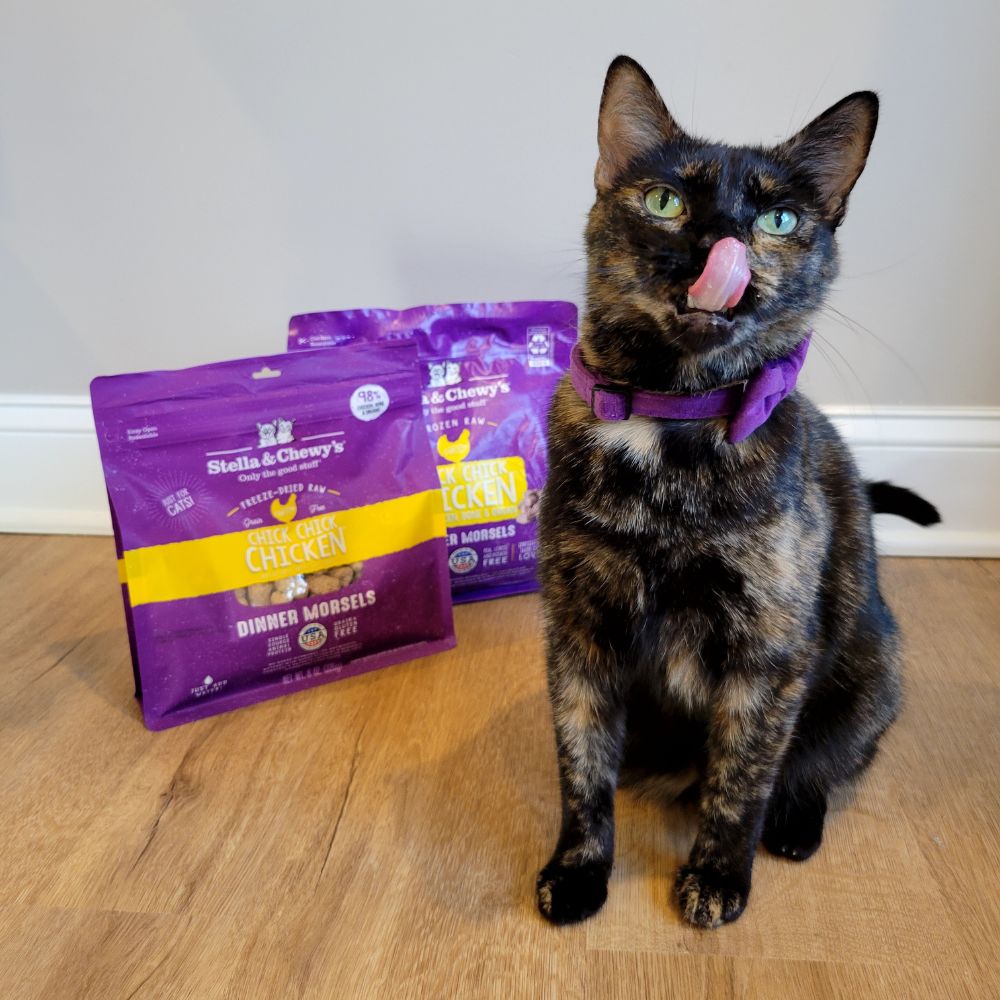Yes, cats can eat eggs. Fully cooked eggs are a great nutritional treat for cats. Eggs are packed with nutrients, like amino acids, which are the building blocks to protein, and they’re also highly digestible. Scrambled, boiled, however you choose to prepare them is fine.
How Much Egg Should Cats Eat?
High-quality, nutritionally complete cat food should provide the majority of your cat’s daily caloric intake. Treats, such as eggs, should provide the majority of your cat’s daily calories (no more than 2010%).
One large chicken egg has about 75 calories. A 9-lb cat requires roughly 280 calories a day on average. Overindulging in eggs or any other treat can quickly result in unhealthful weight gain.
Although each cat is unique, generally speaking, you should only give your cat one tablespoon of cooked egg as a treat or meal topper no more than once or twice a week.
Are Eggs Good for Cats?
Cats in good health can benefit from cooked eggs if they are prepared and portioned appropriately. Eggs are not recommended for cats with certain medical conditions, such as pancreatitis or kidney issues.
Eggs are a great source of protein, iron, vitamin D, and a host of other vitamins and minerals that cats require to be healthy. Eggs also contain anti-inflammatory omega-3 fatty acids, which can help to promote a glossy coat, and lutein, an antioxidant that supports eye health.
Nearly all of the protein in egg whites is free of fat or cholesterol. Egg whites can be a useful addition to your cat’s regular diet in terms of protein, but they shouldn’t be your cat’s main protein source. Additionally, it’s crucial to give your cat only cooked egg whites. A protein found in raw egg whites called avidin binds to biotin (vitamin B7), inhibiting its absorption and possibly leading to a deficiency.
Cooked egg yolks are safe for cats to consume and are high in nutrients, but they are also high in fat. Egg yolk fat can add extra calories to your cat’s diet, which could be detrimental if you’re trying to actively control their weight. A gram of fat contains nine calories, compared to only four for a gram of protein or carbohydrate.
Even though your cat might not even enjoy eggs, there are ways to safely satisfy their craving if they appear to be pleading for a taste whenever you prepare eggs.

Remove all pesticides from dandelions, including the roots, as they are especially beneficial for liver detoxification. Rinse them well, and finely mince them. You can add a tiny bit of them—no more than 1/8 tsp—to cat food. ) or bake them to extend their shelf life if kept in an airtight container. Chewing on plants is a popular past time for cats and a great way to introduce some roughage into their diet.
The veterinarian in me must warn you that human foods can be extremely dangerous for cats, even though it can be difficult to resist sharing your dinner plate with your cat when she rubs back and forth against your legs at mealtime (especially if she tries to steal food from your plate like one in my household). Certain foods, like the classic milk saucer, can cause serious damage to your cat’s digestive system and your carpets.
If you’re wondering why cats can consume yogurt made from cow’s milk but not actual cow’s milk, the answer is straightforward. With the yogurt’s culture, lactose has already been broken down, and milk proteins have either been eliminated or reduced, making it delicious and simple for cats to digest.
As long as lean meats aren’t cooked with a lot of sauces and spices, you can share them right off your plate or prepare them in a variety of ways. Avoid the temptation to feed your cat any of your leftover fat; doing so could put your cat at risk for pancreatitis.
I sincerely hope you will think about incorporating some of these whole foods into your cat’s diet, whether you go for grain-free cat food, raw foods, or a tried-and-true staple from the grocery store. Generally speaking, your cat’s diet shouldn’t include these superfoods for cats for more than 15% of the total. Everything in moderation, of course, with the exception of loving and cuddles from cats.
FAQ
How much scrambled egg can I give my cat?
Are scrambled eggs good for cats with diarrhea?
Can you mix egg with cat food?
Can cats eat scrambled eggs with cheese?